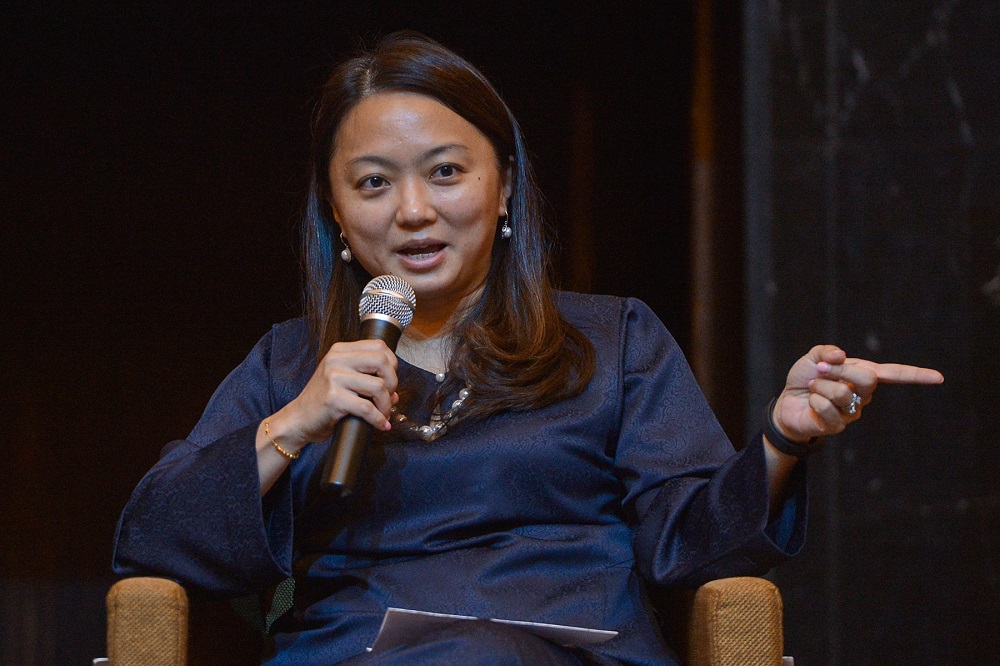Subscribe to our Telegram channel for the latest updates on news you need to know.
PETALING JAYA, April 12 — Segambut MP Hannah Yeoh today said that reforming political financing in the country should be a priority, especially to address the frequent instances of defections by MPs from one party to another.
The former deputy women, family and community development minister said this must be done in order to combat political corruption in Malaysia.
“When we (Pakatan Harapan) first took Putrajaya after the 14th general election in 2018, we discovered that it was difficult for us to gain access to funding,” Yeoh said during the Centre to Combat Corruption & Cronyism’s (C4) report launch on political financing, foundations and donations at the Sheraton Hotel this morning.
Yeoh said it is necessary for politicians and MPs to operate on a set budget such as for paying the salaries of staff and renting offices, in order for their career to progress.
“Eventually I began to wonder how the previous government figures managed to gain funding to operate their careers, while myself and others struggled.
“This is particularly the case for rural-based MPs. Obtaining financing for an MP based in Klang Valley is different compared to obtaining financing for an MP based in, say, Kota Belud,” she said.
The lack of funding in turn hampers MPs from being unable to carry out their job and duties to their constituents properly, which can result in them being voted out of office during the next election cycle.
“This lack of access to funding for their constituents is also the main reason why MPs jump ship from one party to another.
“There are other problems that MPs, both government and opposition, face. For example, the funds allocated to them by the Implementation Coordination Unit (ICU) under the Prime Minister’s Office,” Yeoh said.
According to her, MPs who seek to carry out even the most basic development projects within their constituencies must stick to the guidelines set by the ICU, such as only using a certain list of contractors to undertake the task.
“This inability to choose your own contractors when carrying out projects can be insensible, especially if it is not cost-effective.
“As an MP you may be able to source for one contractor who costs less but is unable to use the contractor because he/she is not on the list. This also results in a lot of wastage of funds,” she said.
Yeoh cited another example, wherein the allowances granted to MPs to carry out their duties cannot be used directly but must instead be paid to an NGO.
“Say if the MP has been granted RM100,000, they cannot use the money directly to carry out the various activities in their constituency but must instead do so through an NGO.
“Not only is this a waste of time, it is also a grey area that is potentially open for abuse by unscrupulous individuals,” she said.
Yeoh stressed that this is just the tip of the iceberg with ICU funds, and could be the same elsewhere with other government funding.
“Every time you are faced with this sort of grey policy, where no one really knows who to turn to or where to apply. The system has become so complex and you do not know why the government does not take steps to simplify it.
“When the inability to seek redress emerges, it becomes a matter of who you know rather that what you must do, this grey area is the room where corruption breeds,” she said
When asked about the need for a Political Financing Act to address these issues, Yeoh said it must take willpower from both sides of the political aisle to do so.
“We in the Opposition are also victims to such a problem. Just look at the rate of defections by MPs and you realise it is a real issue, especially in the rural areas.
“In today’s political climate, where the government is 50/50 and anyone can either become government or opposition members, the current administration should be aware that it is in their own self-interest to address this. It should be sufficient incentive to do so, in the first place,” she said.



